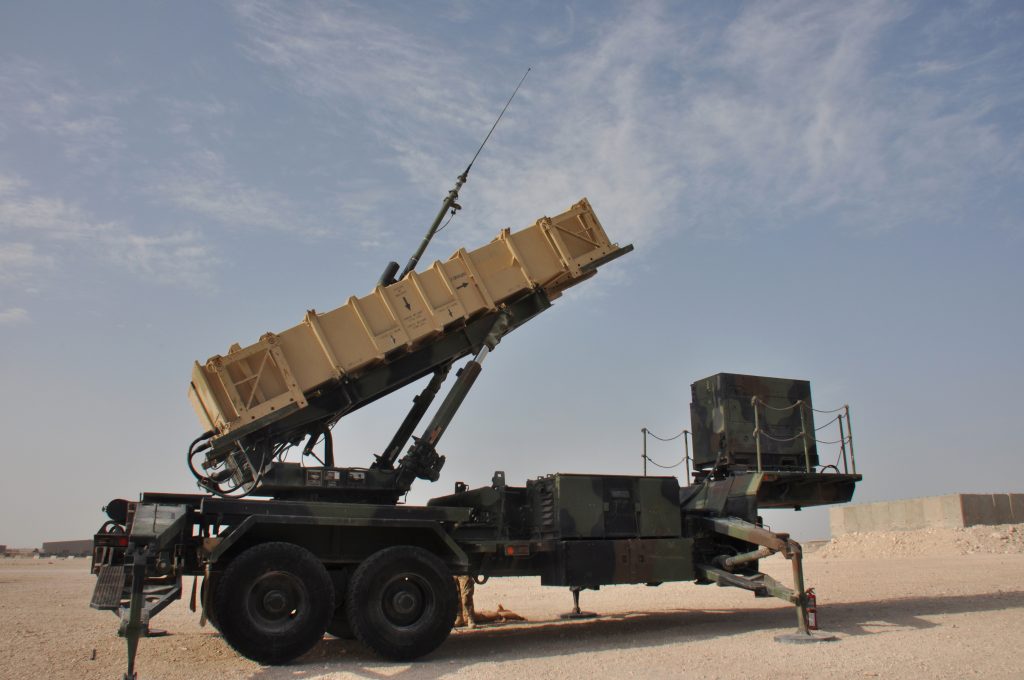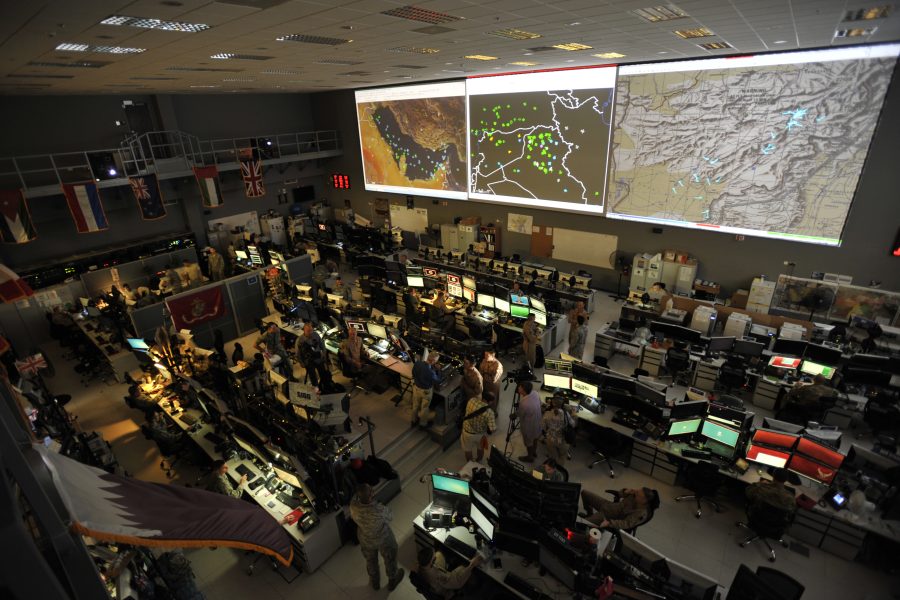Iran launched a missile attack on Al Udeid Air Base, Qatar, June 23 in retaliation for U.S. strikes on three of its nuclear facilities the previous day.
Images and videos online showed numerous explosions in the skies over the Qatari capital of Doha, which appeared to be interceptions of incoming missiles by Patriot interceptors at Al Udeid, which is located 20 miles outside of Doha. Iran claimed responsibility for the attack.
Qatari and U.S. officials said there were no reported casualties.
“U.S. Central Command successfully defended against the attack,” a defense official said. “There are no injuries to U.S. personnel. We will continue to take all necessary measures to protect and defend U.S. personnel, partners, and allies in the region.”
In a statement, CENTCOM confirmed the attack was defeated by American and Qatari Patriot batteries. Al Udeid has a large array of Patriot launchers, the U.S. military’s key ballistic missile defense system.
The attacks came from “short-range and medium-range ballistic missiles originating from Iran,” a second defense official added.
In a post on Truth Social, President Donald Trump wrote that 13 missiles were intercepted and one missile was “set free” because it was not deemed a threat. “I am pleased to report that, in addition to no Americans being killed or wounded, very importantly, there have also been no Qataris killed or wounded,” Trump stated.
The attack was a “very weak response, which we expected, and have very effectively countered,” Trump wrote.
Iran’s Supreme National Security Council said the number of missiles launched was the same number of bombs that were dropped by U.S. warplanes on Iran’s nuclear facilities: 14. The Iranian government gave advance warning to Qatar and the U.S. in advance of the incoming attack, according to Trump.
“The base had been evacuated earlier, following established security and precautionary measures, given the tensions in the region,” a Qatari foreign ministry spokesman wrote on X. “All necessary steps were taken to ensure the safety of personnel at the base, including Qatari Armed Forces members, friendly forces, and others. We confirm that no injuries or human casualties resulted from the attack.”
Iran’s Islamic Revolutionary Guard Corps (IRGC) said in a statement that Iran targeted Al Udeid with a “devastating and powerful missile attack.”
“This base is the headquarters of the Air Force and the largest strategic asset of the U.S. terrorist army in the West Asia region,” the IRGC wrote in a statement.
The sprawling air base is a joint U.S.-Qatari facility that serves as the largest and most important U.S. base in the Middle East and hosts the forward headquarters of U.S. Central Command and U.S. Air Forces Central. It is home to the Combined Air Operations Center, the command center for airpower in the region. Al Udeid has some 10,000 military and civilian personnel. Iranian missiles, either fired directly from Iran or its proxy forces, have been a persistent concern for U.S. forces over the years, and Qatar is located directly across the Persian Gulf from Iran.
“I assess they know they are overmatched militarily and do not want another round of U.S. strikes,” retired Army Gen. Joseph L. Votel, the commander of CENTCOM from 2016-2019, told Air & Space Forces Magazine of the Iranian calculus, noting Trump’s June 21 warning to Iran not to strike back at the U.S.
In recent days, the U.S. military has taken steps to mitigate potential damage and injuries to troops should Iran attack U.S. forces in the region. At Al Udeid, the U.S. moved most planes away from the base, even as squadrons of fighters flowed to other American bases in the region and U.S. troops have been on heightened alert for a possible attack, U.S. officials have said.
“I think the U.S. leadership understood that Iran would have to respond in some manner and were hopeful that it would take a form similar to what it did—an attack that could be defeated easily and which did not pose an unacceptable level of risk,” Votel added. “I think the President’s comments on Saturday night reinforced the notion of strategic uncertainty and Iran had to take his words seriously. I also suspect there was a lot of behind-the-scenes communication taking place with partners and interlocutors to emphasize de-escalation.”
Shortly before the attack, the Qatari government closed its airspace while the U.S. Embassy in Qatar advised citizens to shelter in place.
“We affirm that Qatar reserves the right to respond directly in a manner equivalent with the nature and scale of this brazen aggression, in line with international law,” the Qatari foreign ministry spokesperson stated.
The governments of Saudi Arabia, Jordan, Bahrain, Oman, Egypt, and other countries in the region condemned the attack. Iran said the attack was aimed at the U.S., not Qatar.
Trump signaled he wanted an end to hostilities between Iran and the U.S.
“Most importantly, they’ve gotten it all out of their ‘system,’ and there will, hopefully, be no further HATE,” Trump wrote. “I want to thank Iran for giving us early notice, which made it possible for no lives to be lost, and nobody to be injured.”
Trump later said he brokered a ceasefire between Israel and Iran, which was mediated by Qatar.
The attack on Al Udeid is similar to Iran’s response to the 2020 assassination by the U.S. of Qasem Soleimani, a key Iranian general and the head of the IRGC’s Quds Force, after which Iran engaged in a relatively limited response, attacking Al Asad Air Base in Iraq with missiles but not initiating a broader attack, which Trump also took as a sign of restraint.
“Iran is trying to find a way to avoid escalation with the United States, consistent with their perceived need to respond to the strike,” retired Marine Corps Gen. Kenneth F. McKenzie Jr., the commander of CENTCOM from 2019-2022, told Air & Space Forces Magazine. “They were going to do the absolute minimum they could do to satisfy the requirement to respond while not poking the bear.

This article was updated June 24 with additional information.
